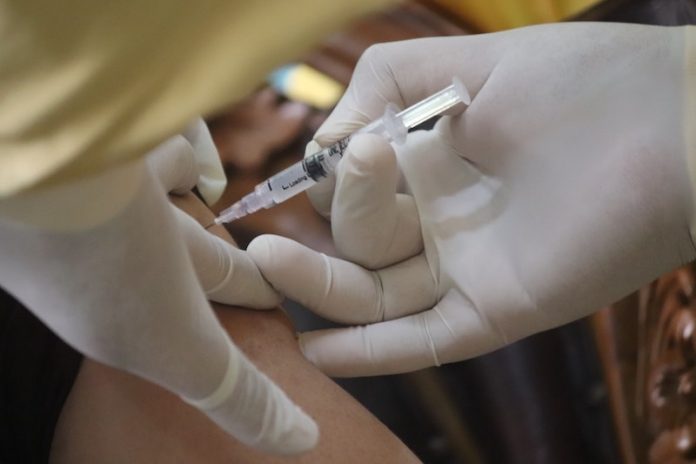
Scientists from the University of Geneva and elsewhere found that vaccination greatly reduces infectious viral load in COVID-19.
They measured the infectious viral load of nearly 600 symptomatic patients to detect possible differences between the original virus, delta and omicron sublineage BA.1, as well as according to vaccination status.
The team discovered that delta causes a higher viral load than the original virus and the omicron variant.
For delta and omicron breakthrough infections, vaccination drastically reduces the viral load. In the case of omicron, however, the decrease was only observed after three doses of vaccine.
Furthermore, omicron’s very high infectiousness is seemingly related to factors other than viral load alone.
The research is published in Nature Medicine and was conducted by Isabella Eckerl et al.
Measuring the viral load of people infected with SARS-CoV-2 is one of the main factors in evaluating the infectiousness of COVID-19 patients.
Viral load can be influenced by the infecting SARS-CoV-2 variant as well as the vaccination status of the patient.
In the study, the team measured the infectious viral load of 3 group of patients during the first 5 symptomatic days to compare the viral load caused by the original virus (118 samples, spring 2020), the delta variant (293 samples, fall 2021) and the omicron variant sublineage BA.1 (154 samples, winter 2022), as well as, for the last two cohorts, whether a big difference could be detected in vaccinated and unvaccinated individuals.
Overall, the infectious viral load for the delta cohort was significantly higher than that of the cohort with the original virus.
However, people infected by delta who received two doses of mRNA vaccine had a much lower infectious viral load than unvaccinated people.
For the omicron group, the infectious viral load was overall lower than that of the delta group.
In contrast, only people who were boosted (that is, having received three doses of the vaccine) had their viral load decreased. people who received two doses only had no benefit in this regard compared to unvaccinated people.
The team says it is now clear that the mutations of omicron strongly differentiate it from other variants, allowing it to partially escape the vaccine, and diminish the effectiveness of some antiviral treatments used so far.
The study also shows that the knowledge acquired for previous variants must be updated every time a new variant emerges to be able to adapt the means of combating COVID-19.
Sign up for our newsletter for more information about this topic.
If you care about COVID, please read studies about new treatment option for COVID-19, and COVID-19 booster provides stronger, longer protection than original vaccines.
For more information about COVID, please see recent studies about a universal antibody therapy for all COVID-19 variants, and results showing scientists find persistent immune inflammation after mild COVID-19.
Copyright © 2022 Knowridge Science Report. All rights reserved.



